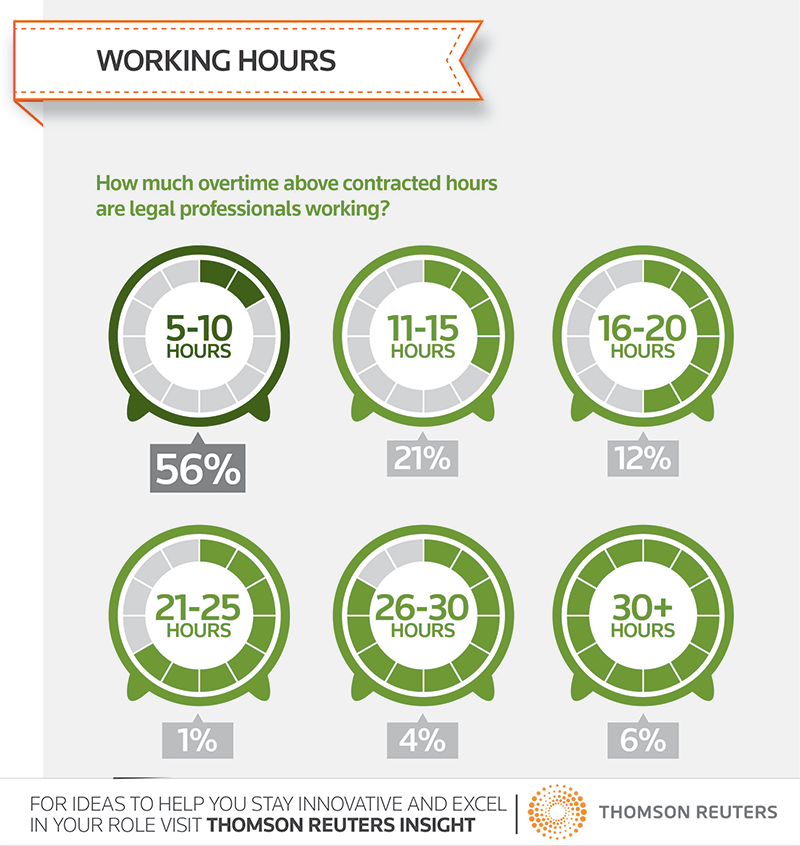-
One-in-10 professionals work 20-hours extra every week
-
Increasing client expectations and firm cutbacks is the cause
-
But technology is helping ease the burden
A new study by legal and tax & accounting information solutions provider, Thomson Reuters, has shed light on the increasing time demands placed on Australia’s legal professionals as hours increase and client expectations grow – as well as the positive role technology can play in driving workflow efficiencies.
More than 140** senior legal practitioners among Chambers and medium-large law firms were questioned in research in March 2013, commissioned to help Thomson Reuters understand the pressures placed on legal professionals and how workflow technologies can help ease this burden.
On average, fee earners were likely to work an additional 10 hours each week above their contract hours (57%), while 21% worked an extra 15, and 11% averaged 20. A dedicated 6% admitted working an average of 30 extra hours each week, taking their working week to approximately 70 hours. The vast majority of respondents (80%), said they were not paid for overtime.
In the past 12-months, 9% of those questioned admitted their longest working week was 100 hours, while 10% had managed 80 hours, and 13% had worked 75 hours in seven days.
Surprisingly, it was general practice firms clocking up the longest hours, with half of fee earners claiming they worked an average of 20 hours extra each week – nearly a third above the Firm-wide average.
Legal professionals in all roles also claimed that their working hours had increased year-on-year from 2010, while the next 12-months were no better with [pullquote align=”right” forward=”2″]32% saying they expected to be working even longer hours. Just 13% predicted they would be working less.[/pullquote]
When asked what was causing this growing work load, more than half (55%) put it down to increasing demands from their employer, 22% said it was down to clients expecting more servicing for the same fees, 13% said their company was cost-cutting, and 10% said it was down to there being less fee earners within the Firm.
However, the majority of professionals questioned admitted that workflow and legal research technology helped them work more efficiently. 78% said the time they took to conduct legal research was quicker, 54% claimed their administrative demands were less, 37% said workflow technologies helped them save significant time, while 12% claimed technological developments meant there was less networking to do.
Carl Olson, ANZ Product Management Director, Thomson Reuters Legal, comments: “There’s no doubt that the high standards demanded of law firms place enormous pressure on practitioners. As the economy continues to be challenged, these expectations will only increase requiring legal professionals at all levels to work more smartly and strengthening the case for workflow technologies.”
Source:
*Study questioned 144 senior staff/partners/librarians/barristers across medium-large law firms and chambers in Australia. Detailed research breakdown is available on request.



